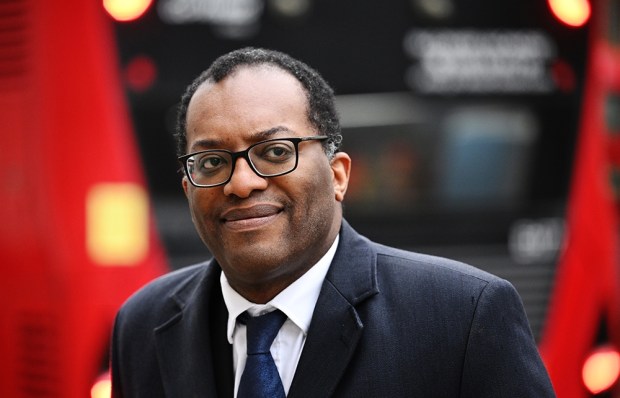‘The City is in no doubt that staying in Europe is the only way ahead,’ declared Mark Boleat for the City of London Corporation. Likewise Chris Cummings of the lobby group TheCityUK praised David Cameron for delivering ‘a really special deal’. The official Square Mile is squarely for ‘remain’, confident that the Prime Minister has secured safeguards to let the UK keep control of a thriving financial sector in a multi–currency EU. But with all due respect, I wonder what the real players think.
The economists Gerard Lyons and Ruth Lea are two other respected City voices, and they warn that those safeguards won’t be worth much as Paris, Frankfurt and Brussels pursue their long-term aim of grabbing financial activity from us. Meanwhile, many dealmakers and wealth managers — including European expats who love London — believe the City can thrive in or out, but that what it might lose by coming out would be more than compensated by new business fleeing the eurozone’s regulatory straitjacket and stifling hostility to markets.
Such views belong to a strong City tradition. I had cocktails last week with a banker whose memories of the City stretch half a century — a cosmopolitan citizen of Europe who I had expected to be all for staying in. But no: ‘You have to remember that they will always want to bring Britain down because our economy is stronger and more successful than theirs. Of course we should get out.’ I was reminded of a conversation with the late Sir Ronnie Grierson — a pre-war migrant from Germany and former Brussels official — who believed fiercely that the UK would be better off alongside Norway in the semi-detached European Economic Area, free of the irritation and inertia of the EU itself.
These were financiers who were in at the birth of the eurobond and the eurodollar — which sound communautaire to modern ears but were really the opposite: freewheeling offshore markets, matching global depositors to borrowers, in which London bankers invented the rules, English law made those rules stick, and Brussels had no locus at all. Many of those City pioneers had middle-European surnames (or like Grierson, né Griessmann, anglicised versions) but few ever doubted the advantage of Britain’s offshore status — and of course, in those days, none had forgotten the war. An exception was Siegmund Warburg, often described as a passionate advocate of European integration — but even he chose to spend his final years in the safer haven of Switzerland.
Never depressing
It’s 21 years since I drove Boris Johnson through a Yorkshire blizzard to his first-ever speaking engagement as a would-be politician. Little did I imagine he’d one day have the power to move global foreign exchange markets simply by declaring himself for ‘out’. The pound dived against the dollar on the news, warning us that it will fall much more if we actually vote with Boris. But that of course makes UK exports easier to sell; it also makes imports (and ski holidays) more expensive, but at near-zero inflation that’s a lesser worry: hence FTSE stocks perked up in response. Any country would be glad of a secret weapon that can make its economy more competitive just by giving a bumbling pavement press conference. So let’s not talk of Boris ‘depressing’ the pound; for all his faults, Boris never depresses anything.
Picking on the sick man
I wrote last week that traders would soon spot another weakling bank ‘and short-sellers will make another killing out of it’. Sure enough, Monday’s headline was ‘Hedge fund gambles on Standard Chartered fall.’ The fund was Marshall Wace but others were said to be eyeing the same bet, which was a pretty obvious one. Having already fallen by a quarter this year, StanChart’s shares dropped another 10 per cent in first response to Tuesday’s annual results: a $1.5 billion loss last year, after a $4.2 billion profit in 2014. Heavily exposed to Asia and commodities, StanChart is the sick man of the overseas banking sector (HSBC has problems and potential scandals too, but still reported profits of $19 billion) and ex-JPMorgan chief executive Bill Winters has yet to persuade investors he has an elixir in his medicine bag. Only the presence of the Singapore state investment fund Temasek as its biggest shareholder stops StanChart being a prime takeover target. But then again, you’d be a very bold banker to want to buy it at this stage in what so many pundits see — at least in relation to the markets in which it is most active — as a downturn with a whiff of doom about it.
Good riddance to Mr Xiao
Positive news at last from Shanghai, whose plunging stock market has fuelled pessimism throughout the investment world: the bloke in charge has been sacked. That may sound like confining Titanic’s health-and-safety officer to his cabin some time after the iceberg collision, but actually China’s chief securities regulator Xiao Gang — a former Bank of China official who once admitted he preferred poetry to mathematics — has a lot to answer for.
It was his commission’s decision last June to change rules on traders’ use of borrowed money that provoked Shanghai’s first dive, after a 150 per cent rise in a year; in January, the introduction of a ‘circuit-breaker’ to limit daily falls caused both the Shanghai and Shenzen exchanges to close twice in four days, contributing to another bout of global jitters. Perhaps Xiao’s successor, Liu Shiyu from the Agricultural Bank of China, should start by admitting that Shanghai’s story has been far more about outright gambling on the way up and technical incompetence on the way down than it has been about fading fundamentals of the Chinese economy — other than underlining the feebleness of its governance. As one unusually brave local blogger posted: ‘Why does China always let the fools make decisions?’
REFERENDUM 2016: THE BATTLE AHEAD
Join Isabel Hardman, James Forsyth and Fraser Nelson at the ICA, near Trafalgar Square, to discuss the campaign with Ben Page, pollster at Ipsos Mori. A subscriber-only event. To book, click here. To subscribe from £1/week, click here.
Got something to add? Join the discussion and comment below.
Get 10 issues for just $10
Subscribe to The Spectator Australia today for the next 10 magazine issues, plus full online access, for just $10.
You might disagree with half of it, but you’ll enjoy reading all of it. Try your first month for free, then just $2 a week for the remainder of your first year.
















Comments
Don't miss out
Join the conversation with other Spectator Australia readers. Subscribe to leave a comment.
SUBSCRIBEAlready a subscriber? Log in